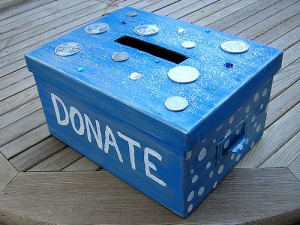50 Years of Charity In An Uncharitable State
Tonight, the New Hampshire Charitable Foundation celebrates its 50th year in operation. NHCF has staff in each region of the state, and raises funds from individuals, organizations and corporations, making approximately $30 million in nonprofit grants and scholarships annually.
But the New Hampshire Charitable Foundation may have to work a little harder than other state-wide foundations across the country. New Hampshire has been ranked least-charitable state in the country for many years. That’s according to the Catalogue for Philanthropy’s “generosity index” which uses IRS data summarizing personal income tax returns.
Back in 2005, the Keene Sentinel argued that this generosity index may not be representative: perhaps Granite Staters are simply less likely to report their charitable giving, preferring instead to pay more in personal income taxes — a surprising argument for a state famously opposed to taxes on personal income.
There’s another reason New Hampshire might rank so poorly for charitable giving that has more to do with demographics. In a 2008 New York Times op-ed, Nicholas Kristof writes: “among the stingiest of the stingy are secular conservatives.” Incidentally, New Hampshire is the second-least religious state in the union and the most conservative state in the Northeast, according to Gallup. Kristof also notes that the biggest factor in charitable giving is religiousity: most of the variability between political parties and state rankings has to do with gifts to religious institutions.
Despite the cool environment the state may offer such an organization, the New Hampshire Charitable Foundation has been recognized by the Aspen Institute for its impact on public policy, and continues making 3,000 grants and 1,200 scholarships every year.
